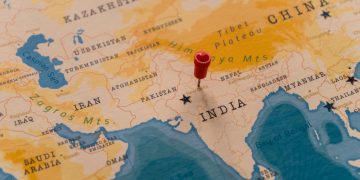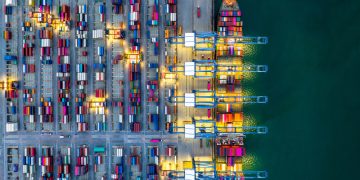All Aboard Alliance and TURTLE released a new report which sheds light on the critical barriers women face in maritime careers.
Drawing on insights from over 3,300 seafarers, the “Employability in maritime: Four key challenges facing women seafarers” report identifies four major barriers: gender and nationality discrimination, certification, systemic bias, and career transition difficulties. Regarding these four barriers, the publication notes the following:
#1 Gender and nationality discrimination
Gender discrimination remains a key concern in the maritime industry, with 29% of women identifying it as a significant obstacle in their career, in contrast to only 0.4% of men. Although the survey indicates a relatively small disparity in current employment rates between men and women, many women perceive discrimination as a substantial barrier to their hiring, career progression, and job security. Nationality discrimination compounds these difficulties. This intersection of gender and nationality biases presents unique and significant challenges for women seafarers in securing and advancing their careers.
#2 Certification and qualification challenges
Obtaining and maintaining certificates of competency, which are essential for working on internationally flagged ships, poses hurdles for 16% of women respondents. In developing countries, national certifications often lack international recognition, severely restricting career opportunities at sea. This issue highlights the need to ensure that all seafarers, regardless of nationality, have equal access to global job markets.
#3 Systemic bias
A recent study from the American Journal of Industrial and Business Management (AJIBM) showed how gender stereotypes impact women’s ability to progress within maritime roles. Despite their dedication and qualifications, women are still too often relegated to support and junior positions. Other challenges described in the AJIBM study included the 45 percent pay gap between men and women, discrimination, abuse, harassment, and inability to enter management positions.
#4 Challenges in career transitions
Transitioning from sea-based to shore-based roles can be particularly difficult for women seafarers. Women are more likely to seek shore-based opportunities than their male counterparts, but barriers such as discrimination and family responsibilities often complicate these career transitions. These challenges can limit women’s ability to secure stable and rewarding employment ashore.
With women making up less than 2% of the global seafaring workforce amid a severe shortage, breaking down these barriers is essential. Distributed through TURTLE’s extensive database, the survey aims to reach a wide audience to raise awareness and drive progress toward a more inclusive, resilient maritime,
… commented Isabelle Rickmers, CEO of TURTLE. As she had explained to SAFETY4SEA, to implement ESG principles effectively, industry players must integrate the respective values into their corporate culture, both on land and at sea. Leadership plays a key role in this process.
Challenges in securing employment
Overall, 58% of men and 52% of women respondents reported being employed or having been employed recently, underlining the difficulties seafarers of different ranks and genders face in obtaining employment.
For male respondents, the ranks facing the most difficulty in securing jobs included engine cadets (64% unsuccessful applications), deck cadets (57%), and welders (56%). For women, the barriers were even more pronounced, with 100% of both able-bodied seamen and 4th officers and 75% of engine cadets failing to secure jobs. These findings call for urgent action to address the systemic issues that prevent seafarers, especially cadets, junior workers, and women, from securing employment or placements onboard a ship.
Reasons for unemployment at sea
The survey explored why some seafarers are currently unemployed, including:
-
Applying and not securing a job: The primary reason for unemployment, based on the survey, is the inability to secure a job, bearing in mind that most seafarers are contract workers who are essentially unemployed when they are between contracts. Among survey respondents, more than half of unemployed women (51%) and nearly half of the unemployed men (46%) are actively seeking employment but cannot find positions.
- Top 3 nationalities (Female): Nigerian (41%), Filipino (21%), South African (16%)
- Top 3 ranks (Female): Not applicable (28%), Deck cadet (25%), Other (21%)
- Top 3 nationalities (Male): Indian (871), Nigerian (359), Filipino (308)
- Top 3 ranks (Male): Master (298), Ordinary seaman (264), Other (236)
-
Seeking employment ashore: A notable percentage of seafarers seek shore-based employment opportunities, with 19% of women and 11% of men actively looking for jobs ashore.
-
Family and personal responsibilities: Family and personal responsibilities impact seafarer employment. Among the respondents, 8% of women cited children or family responsibilities as their reason for unemployment, compared to 7% of men who cited broader family responsibilities. This highlights the need for better support systems for all seafarers with families.
-
Other reasons: A substantial number of seafarers fall under the ‘Other’ category, with 22% of women and 13% of men indicating unspecified reasons for unemployment. This points to the need for further investigation to uncover specific barriers they may encounter.
-
Certification issues: Certification issues hinder seafarers’ employability. About 4.5% of women and 6% of men are currently awaiting the renewal of their certificates, which is a mandatory requirement for employment. Delays in this process can severely limit their ability to secure jobs. Additionally, 2% of all seafarers have certificates that have become invalid, further preventing them from obtaining employment.
-
Other personal reasons: Some 1.5% of women seafarers reported being pregnant, which temporarily affects their ability to work at sea.

According to the report, addressing these issues is critical to the sustainability and growth of the maritime sector. By removing these barriers, the industry can access a valuable, underrepresented talent pool and move toward a more inclusive, diverse, and resilient future.
I am deeply troubled by the discrimination seafarers from the Global South, notably from Africa, continue to face as they confront barriers rooted in both gender and nationality.
… said Susanne Justesen, the Global Maritime Forum’s director of human sustainability. To remind, Susanne Justesen had also expressed the opinion that we need to move away from merely complying with minimum requirements towards actively co-designing better and more attractive working conditions for all, at sea and onshore – for all genders.




























































